Amazon Aurora
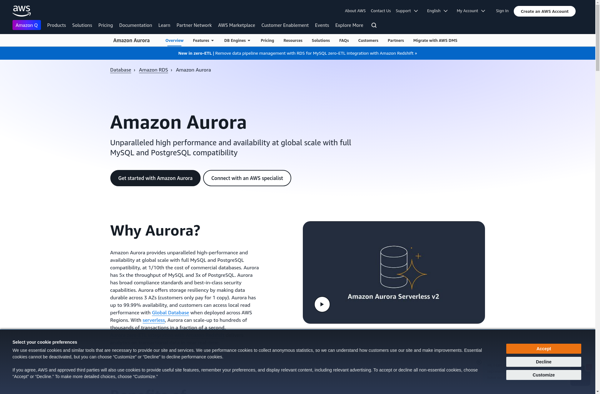
Amazon Aurora: Fully Managed Relational Database Service
Amazon Aurora is a fully managed relational database service created by Amazon Web Services (AWS). It offers the performance and availability of traditional enterprise databases at a lower cost.
What is Amazon Aurora?
Amazon Aurora is a relational database service developed and offered by Amazon Web Services (AWS) as part of their suite of cloud computing services. Launched in 2015, Aurora aims to provide commercial-grade performance and availability at the cost-effectiveness of open-source database engines.
Some key features of Amazon Aurora include:
- Fully managed service - Aurora handles routine database tasks like backups, software patching, automatic failure detection, and recovery
- High performance - Aurora claims 5x the throughput of standard MySQL databases on the same hardware
- High availability - Data is redundantly stored across multiple Availability Zones with fast failover
- Scalability - Start with 10GB of storage and scale up to 64TB per database instance
- Compatibility - Supports both MySQL and PostgreSQL database engines
- Cost-effective - Costs less than half as much as some commercial-grade databases
Amazon positions Aurora as a cloud-native alternative to commercial databases like Oracle and SQL Server for mission-critical workloads. Its combination of performance and availability make it well-suited for large-scale online transaction processing (OLTP) applications.
Amazon Aurora Features
Features
- Fully managed by AWS
- Compatible with MySQL and PostgreSQL
- Auto scaling storage
- High availability
- Fast performance
- Serverless option available
- Distributed and replicated architecture
- Point-in-time recovery
- Automated backups
Pricing
- Pay-As-You-Go
Pros
Cons
Official Links
Reviews & Ratings
Login to ReviewThe Best Amazon Aurora Alternatives
Top Development and Databases and other similar apps like Amazon Aurora
Here are some alternatives to Amazon Aurora:
Suggest an alternative ❐PostgreSQL
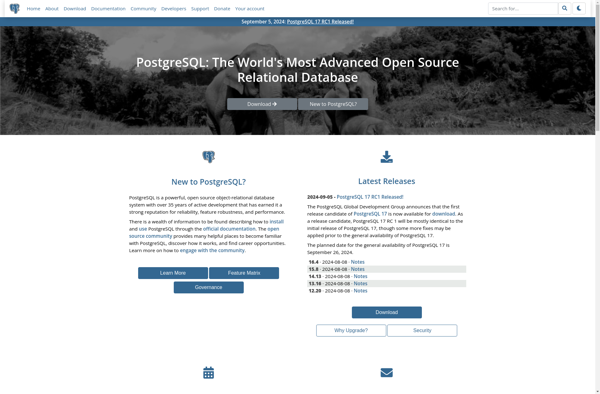
MySQL Community Edition
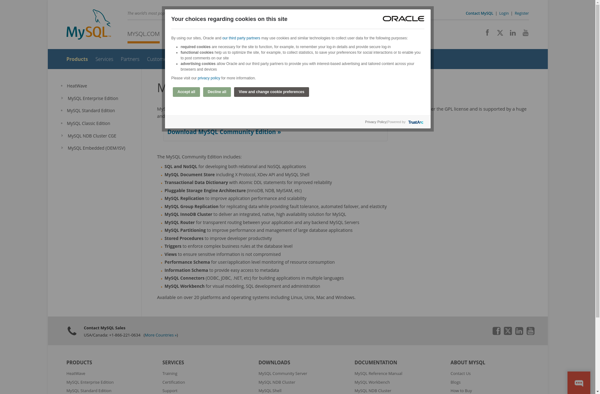
Microsoft SQL Server

SAP HANA
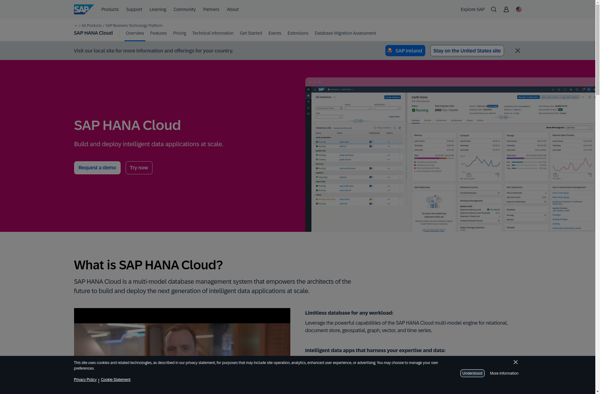
Oracle Database
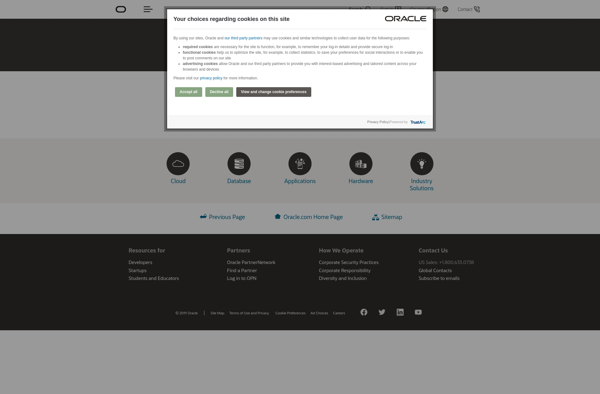
IBM DB2

EdgeDB
